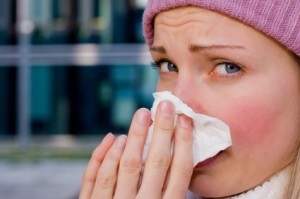 Part of learning to live life off-the-grid means finding alternative therapies to common ailments and not running to the doctor (as my mother put it) “every time you have a hangnail.” My mother was indeed old-school, having been born in the middle of the Great Depression. She had a home remedy for everything.
Part of learning to live life off-the-grid means finding alternative therapies to common ailments and not running to the doctor (as my mother put it) “every time you have a hangnail.” My mother was indeed old-school, having been born in the middle of the Great Depression. She had a home remedy for everything.
Between the ever-rising cost of healthcare and the necessity of stretching a dollar in the same way our parents were forced to do, alternative methods to treat non-life threatening illness will continue to grow in popularity and one day may even be the norm. (As always, however, if you have a major illness or a problem that is beyond the scope of what resources you have available, by all means go to the doctor!)
- THE COMMON COLD: While the common cold is the result of a viral infection, the severity of the cold is in direct relation to the health of the individual. Stress, lack of sleep, depression, and even sudden changes in temperature can make an incident with a cold even worse. The top natural treatment for this ailment is lemon. The vitamin C-rich juice of one lemon, twice a day, diluted in warm water with a teaspoon of honey reduces the duration of the illness and increases your body’s resistance to the bug.
- EARACHE: The main cause of earache is an infection of either the external ear or the middle ear. The most common is an infection of the outer ear known as “swimmer’s ear.” One way to help clear this type of infection up is to blow dry your ear for at least 5 minutes, twice a day, on a warm or cool setting. Do this for at least 5 days. A few drops of warm oil in the ear will help relieve pain as well. Take the juice from a clove of garlic and add it to the mineral or olive oil to help with antibacterial action.
- COUGHING: There’s nothing worse than a hacking cough that won’t let go. Make two separate pots of boiling water and cut up ginger root to go in one pot and cayenne pepper in the other. Boil to make a soup. Drink them one following the other, as hot as you stand it and as strong a soup as you can tolerate. This is great for coughs resulting from allergies or asthma. You can also add a teaspoon of honey to a cup of grape juice for cough relief.
- ITCHING: Itching due to non-medical reasons can be adequately treated with home remedies. Bathing in oatmeal or baking soda can soothe the skin immensely. You can also use cornstarch or two tablespoons of apple cider vinegar in your bath water for itch relief. In addition, avoid overly hot baths. Cool showers could make all the difference in itchy skin.
- HICCUPS: Home remedies for hiccups are as numerous as the stars in the sky. Hiccups result from an irritation in the diaphragm. Generally hiccups last for only a few minutes, but in some instances they can go on for hours or days. Take a tablespoon of dill pickle juice and sip it from the spoon ever so slowly. Other remedies include sipping ice water or simply trying to hold your breath.
- ARTHRITIS: The raw potato juice treatment for arthritis is considered the most successful for arthritic conditions and has been used in folk medicine for centuries. Thinly slice one medium potato (leave the skin on) and place in a large glass of cold water. Let this sit overnight. In the morning, drink the juice on an empty stomach. Garlic has anti-inflammatory properties that help with arthritic conditions. It can be eaten raw or cooked. If you want to avoid unpleasant “garlic breath,” you can always take a garlic supplement.
- ALLERGIES: A teaspoonful of locally produced raw honey taken twice daily has been shown to help reduce allergic reactions and asthma in people. The trick is the honey needs to be locally grown and not pasteurized. As the bee population succumbs to colony collapse disorder, more and more people are taking up beekeeping not only as a hobby, but to protect the bee population. You can find your state’s bee association on the Internet and locate local beekeepers to supply you with honey.
If you liked this article you may be interested in this product from our sponsor.

 Off The Grid News Better Ideas For Off The Grid Living
Off The Grid News Better Ideas For Off The Grid Living



